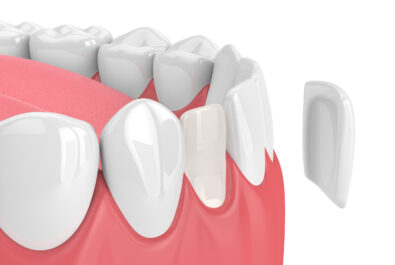As you maneuver your way through your tooth replacement options, you may find yourself flip flopping a bit. Making up your mind when considering how to complete your smile after tooth loss may require some serious thought, asking a lot of questions, and ultimately, figuring out what works best for your needs. If you have been considering a dental bridge for your smile, determining whether a bridge might address your unique smile needs is a good start. Let’s use a quick quiz to help you along in your journey.
Do You Have FAQs About Dental Implants?
Replacing a missing tooth is essential for your oral health. Otherwise, a number of oral health problems can develop, such as misalignment, further tooth loss, or even facial collapse. Fortunately, we can help return your smile to full function and health with dental implants. Do you have questions about dental implants?
When Is a Tooth Extraction the Answer? Part Two
Have you grown concerned that you have a serious tooth infection? Did you suffer a trauma to a tooth, and now it is broken? There are a number of reasons your restorative dentist might recommend a tooth extraction, though it is important to keep in mind that most dentists will suggest an extraction only if other less invasive measures of restoration will be or have been ineffective. If you are in need of an extraction, though, there is no need to fear. An extraction can actually be a first step in helping to create a healthy and great-looking smile! (more…)
Do You Have Questions About Emergency Dentistry?
Have you ever experienced a dental emergency? We consider any pain or damage to the mouth, teeth, or gums to be a dental emergency and urge you to visit us as soon as possible. However, should the issue be potentially life threatening we recommend calling 911 or proceeding to the nearest emergency room. Do you have any questions about our approach to emergency dentistry?
When Is a Tooth Extraction the Answer? Part One
Few, if any, patients want to hear from their dentist that they require an extraction. A tooth extraction can seem a scary prospect, particularly if you are unfamiliar with how the procedure works or how your smile will look or function after the removal of the tooth or teeth. Fortunately, a skilled oral surgeon can help keep you comfortable during a tooth extraction, and then help provide you with a prosthetic, afterwards, that both looks and feels natural. So if you’re struggling with a painful infection, a partially impacted wisdom tooth, or any other oral health issue that requires an extraction, don’t worry. This treatment, followed by the placement of a prosthetic, could actually help you smile, chew, laugh and more, comfortably and just as importantly, confidently once again! (more…)
Could You Be Struggling with Sleep Apnea?
Loud snoring can be an annoyance to both you and your loved ones. Many a family vacation has been interrupted by the loud sounds of dad’s (or mom’s) snoring, and even residing in the same room can be problematic for couples with one loud snorer. Unfortunately, snoring can sometimes be a symptom of a much more critical underlying health condition, Obstructive Sleep Apnea (OSA). Fortunately, it is possible to treat OSA, helping to improve a person’s sleep, and his or her overall quality of life. If you could be struggling with sleep apnea, now is a great time to learn how your dentist might be able to help. (more…)
What Does Placing Implants Involve?
Losing a tooth isn’t just harmful to your appearance. Missing teeth can cause facial collapse, misalignment, and even lead to further tooth loss. Fortunately, we can discuss dental implant placement to help restore a missing tooth. How do dental implants work? Can anyone receive them?
Would Sedation Make Dental Care Easier for You?
Sometimes, protecting your smile’s integrity requires a little more work than just a regular checkup and cleaning. For patients who require complex procedures, or who are afraid of the dentist’s chair, sedation can be a deciding factor in their dental health care. Whether you need extensive treatment, feel anxious about receiving your treatment, or have special needs that make visiting the dentist difficult, you have a variety of sedation options to help make your dental care easier and more comfortable. (more…)
A Look at Oral Surgery
Did you know that dentistry, like medicine, has its own surgical field? Oral surgeons undergo extensive training and experience to gain the expertise necessary for handling the most complex and demanding oral health issues. To help you understand the importance of oral surgery, we take a look at just a few of the procedures that oral surgeons are specially prepared to perform. (more…)
Am I a Candidate for Jawbone Grafting?
In general, routine dental care is pretty straight-forward. Brush and floss your teeth twice a day, attend checkups and cleanings as often as recommended, and when necessary, don’t hesitate to undergo a particular treatment. Sometimes, however, dental issues can cause more damage to your oral health than you realize, and a more extensive procedure, like oral surgery, may be necessary. For instance, dental conditions like gum disease and tooth loss can cause significant damage to your jawbone, causing it to lose strength and density. If this describes you, then you might be a candidate for jawbone grafting, especially if you wish to receive one or more dental implants. (more…)













